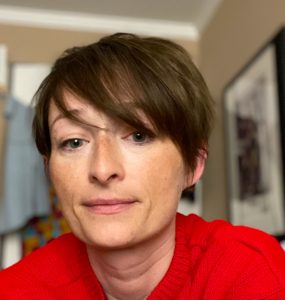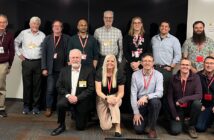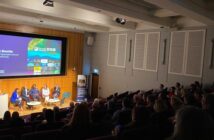The OU’s Dr Tracie Farrell has been announced among 84 promising future leaders as part of a sweep of research and innovation awarded fellowships given funding totalling £98 million.

Dr Farrell’s research considers how Artificial Intelligence and its subfields could contribute to creating a more “just” society
These 84 most promising science and research leaders will benefit from £97.8m to tackle major global issues and to commercialise their innovations in the UK, Science Minister George Freeman has announced.
- Coming from the UK and around the world, they will research major global issues and commercialise their innovations at UK universities and companies
- Additionally, a new £100 million of funding announced for another round of the successful fellowships
Their research will tackle global issues ranging from climate change to the exploitation of women in global garment supply chains and it will help bring researchers’ innovative ideas from lab to market.
Investigating the unintentional outcomes of developments in AI
Among the future scientific leaders announced today is Dr Farrell, Research Associate in the OU’s Knowledge Media Institute (KMi). Her research is about how Artificial Intelligence (AI) and its subfields could contribute to creating a more “just” society and she is looking specifically at the impact on marginalised groups.
She explained:
“There are many ways in which this is currently interpreted within AI research, through dialogue around ethical or “fair” AI, or AI for social good. However there is still a lot of ad hoc development within AI, with unintentional outcomes.
“This risks preserving the biases and current power hierarchies that lead to injustice. Pratyusha Kalluri wrote that if you want AI to be fairer, you need to consider how it shifts power and I took that comment as a starting point for my research. I want to apply knowledge from queer and feminist scholarship – for example, around caring for the most marginalised, the practice of solidarity and resisting normativity – that are all about questioning and shifting power.
“I hope to explore (and eventually answer) the questions: what could it mean to queer AI and, if we could, how would it be fairer than what we have now?”
Commenting on the announcement of her fellowship she added:
“I am really honoured to have been selected for this fellowship. I am excited to be able to share this opportunity with others whose expertise I will rely on and I am looking forward to having the time and space to focus on this issue that is so important to me.”
Science Minister Amanda Solloway said:
“We are putting science and innovation at the heart of our efforts to build back better from the pandemic, empowering our scientific leaders of tomorrow to drive forward game-changing research that could improve all our lives and boost the UK economy.
“Supported by £113 million, the Future Leaders Fellowships will equip our most inventive scientists and researchers across the country with the tools to develop and bring their innovations to market quickly – all while helping to secure the UK’s status as a global science superpower.
UKRI Chief Executive, Professor Dame Ottoline Leyser, said:
“The Future Leaders Fellowships provide researchers and innovators with the freedom and generous long-term support to progress adventurous new ideas, and to move across disciplinary boundaries and between academia and industry.
“The fellows announced today provide shining examples of the talented researchers and innovators across every discipline attracted to pursue their ideas in universities and businesses throughout the UK, with the potential to deliver transformative research that can be felt across society and the economy.”
The government has committed over £900 million to its Future Leader Fellowship initiative over three years. The projects being backed today will be an important part of the government’s ambition to cement the UK’s status as a global leader in science, research and innovation, as set out through the publication of the Innovation Strategy in July.



